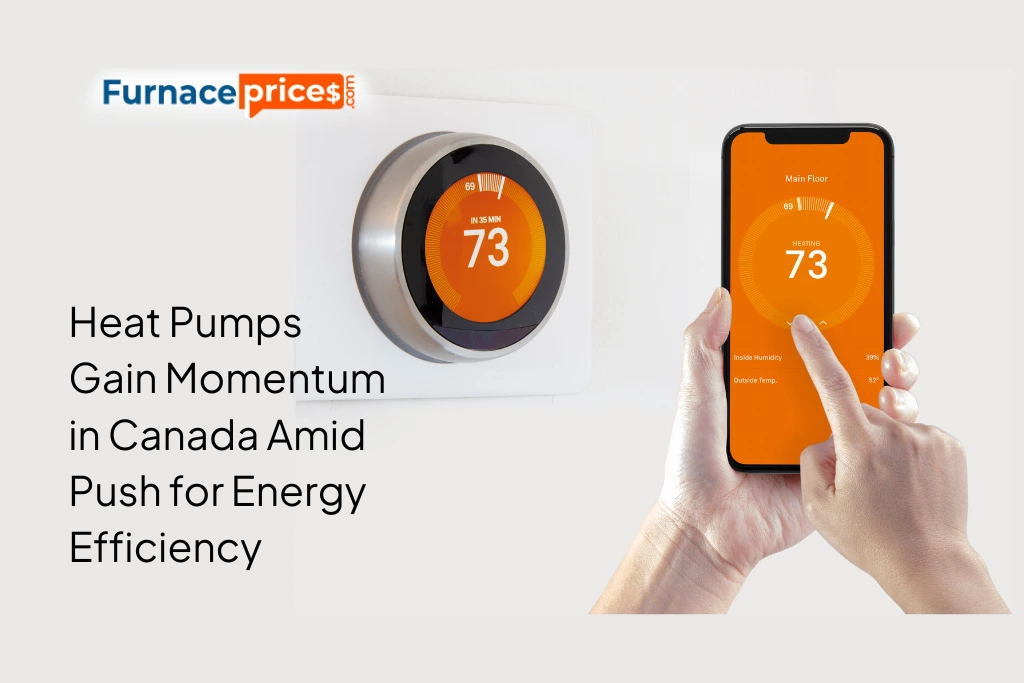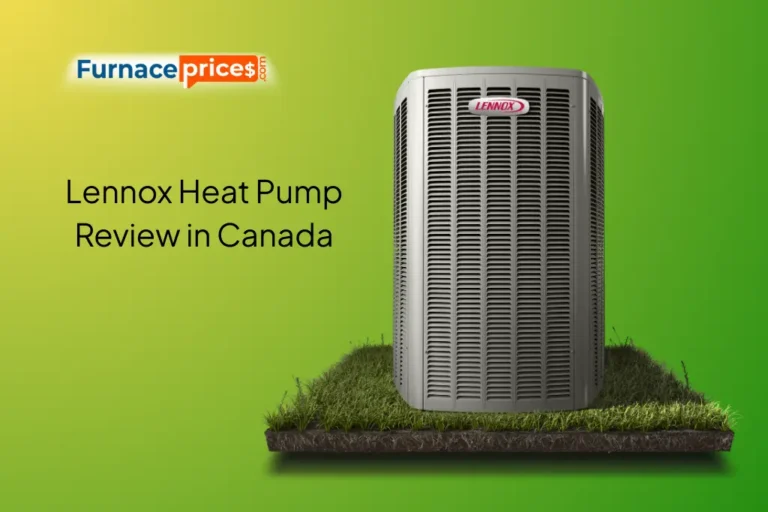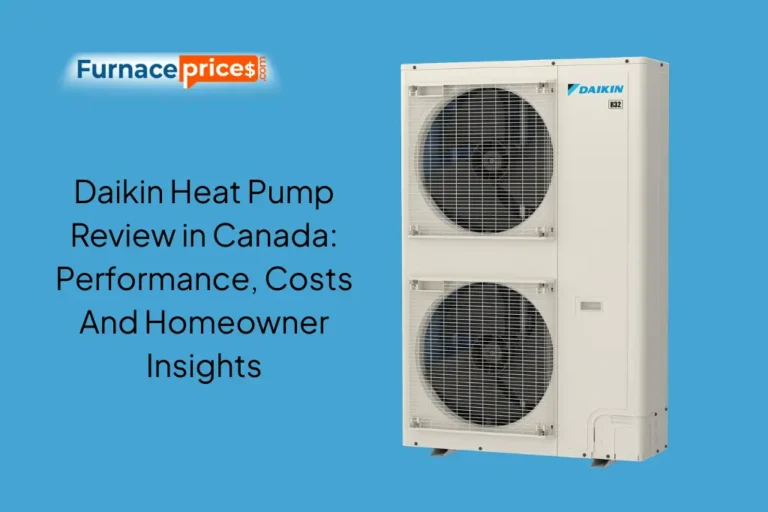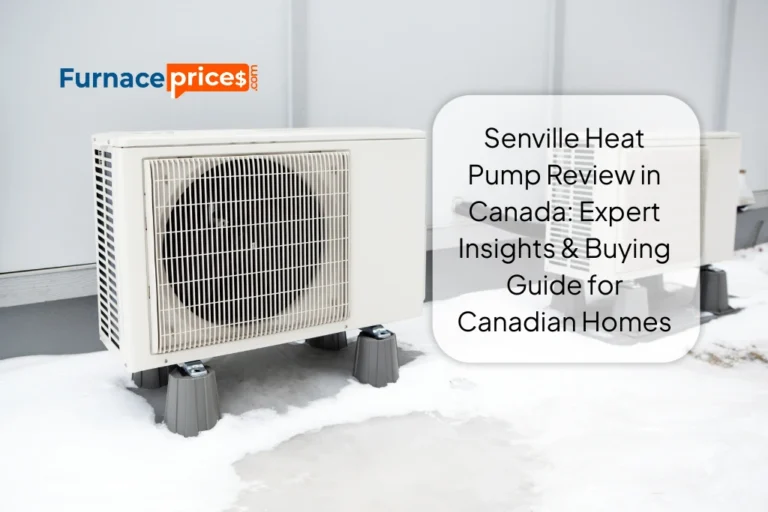Introduction
The shift toward sustainable living continues to grow stronger — and with good reason. Heat pump have emerged as one of the most promising technologies for improving home energy efficiency and supporting Canada’s long-term decarbonization goals. Once considered niche, they are now increasingly becoming the preferred choice for homeowners looking to cut costs and reduce environmental impact.
Across the country, more Canadians are discovering how heat pumps can provide reliable heating and cooling while reducing greenhouse gas emissions — a change that aligns with both national energy targets and personal savings goals.
The Role of Buildings in Canada’s Carbon Emissions
Residential and commercial buildings contribute significantly to Canada’s overall greenhouse gas emissions, largely due to heating needs in colder climates. The Canadian Climate Institute reports that space and water heating together account for roughly 13% of national emissions — a figure that underscores the importance of transitioning to cleaner heating systems.
With the federal government’s commitment to reaching net-zero emissions by 2050, the call to move away from fossil-fuel-based heating systems such as oil and natural gas furnaces has become increasingly urgent. Heat pumps present a powerful solution to this challenge, offering energy efficiency, versatility, and a smaller carbon footprint.
How Heat Pump Work
Heat pumps don’t generate heat through combustion like furnaces do. Instead, they transfer existing heat from one area to another — a process that requires far less energy.
In winter, a heat pump extracts heat from the outdoor air (or ground, depending on the system type) and moves it indoors. During summer, the process reverses, transferring indoor heat outside to provide cooling.
The most common models in Canada are air-source heat pumps, but ground-source (geothermal) and ductless mini-split systems are also popular for certain home types.
Why Canadian Homeowners Are Choosing Heat Pumps
The growing interest in heat pumps can be traced to several key benefits:
- High Energy Efficiency: Heat pumps can deliver up to three times more heating energy than the electricity they consume.
- Dual Heating and Cooling: One system provides both heating and cooling, replacing the need for separate furnaces and air conditioners.
- Lower Carbon Footprint: Because they rely on electricity rather than fuel combustion, heat pumps significantly reduce household greenhouse gas emissions.
- Improved Air Quality: Heat pumps filter and circulate air more evenly, reducing humidity and airborne particles.
- Lower Operating Costs: Especially in regions with affordable hydro rates, heat pumps can dramatically reduce monthly energy bills.
These combined benefits make heat pumps an appealing choice for homeowners seeking both comfort and long-term value.
Heat Pump Adoption on the Rise in Canada
Over the past decade, Canada has seen a steady increase in heat pump installations across both new and existing homes. According to Natural Resources Canada (NRCan), the number of heat pumps in use has more than doubled since 2015 — a trend expected to accelerate as technology improves and rebate programs expand.
One of the strongest drivers of adoption is the combination of government incentives and rising energy awareness. The Canada Greener Homes Initiative, for example, offers rebates of up to $5,000 for qualifying heat pump installations. In Ontario, Enbridge Gas’s Home Efficiency Rebate Plus (HER+) program provides additional financial support that can cover part of the installation cost.
These incentives, paired with high energy costs and the growing availability of cold-climate heat pumps, have made the technology far more practical for Canadian winters than ever before.
Market Adjustments and Future Outlook
While some markets have experienced fluctuations in recent years — partly due to post-pandemic supply issues and economic shifts — industry analysts remain optimistic. Sales of gas furnaces and traditional air conditioners have plateaued, while demand for all-electric systems continues to grow steadily.
Industry experts believe the trend reflects a broader “normalization” in the HVAC market, as consumers become more informed about long-term energy efficiency and sustainability.
The federal government’s continued investment in clean energy initiatives, combined with provincial rebate programs and local utility incentives, is expected to sustain this upward trajectory for heat pumps well into the next decade.
Smart Incentives Powering the Shift
Beyond direct rebates, several provincial and municipal programs are helping Canadians make the switch to efficient systems. For example:
- Nova Scotia’s Home Energy Assessment Program and BC Hydro’s rebates both encourage homeowners to install air-source and mini-split heat pumps.
- Prince Edward Island’s EfficiencyPEI program offers rebates of up to $2,500 for eligible systems.
- New Brunswick’s Total Home Energy Savings Program provides similar benefits for upgrading to efficient equipment.
These incentives reflect a national effort to make sustainable heating accessible to more Canadians, regardless of province or income level.
Financial and Environmental Advantages
For many homeowners, the potential for long-term savings remains a major motivator. The U.S. Department of Energy — whose findings are consistent with Canadian performance data — notes that modern heat pumps can reduce electricity use for heating by up to 75% compared to electric resistance systems like baseboard heaters.
When combined with renewable electricity sources such as hydro or solar, the environmental impact of a heat pump system is minimal compared to fossil-fuel heating options.
According to the International Energy Agency (IEA), achieving net-zero emissions by 2050 will require heat pumps to supply at least 20% of global heating demand by 2030 — a goal Canada is well-positioned to contribute to.
Smart Home Integration and Modern Features
Today’s heat pumps are not only efficient — they’re intelligent. Many models integrate seamlessly with smart thermostats and home automation systems, allowing users to adjust temperature settings remotely, monitor performance, and optimize energy use through connected apps.
This level of control helps homeowners fine-tune comfort while maximizing savings. Some systems can even sync with solar panels and energy storage units, creating an energy-efficient, low-emission ecosystem for modern Canadian homes.
Choosing the Right Heat Pump for Your Home
Selecting the right heat pump involves several important factors:
- Efficiency Ratings: Look for higher SEER (cooling) and HSPF (heating) ratings, as these indicate superior performance and lower operating costs.
- Proper Sizing: A professional HVAC technician should evaluate your home’s size, insulation, and climate conditions to recommend the right unit capacity.
- Cold-Climate Compatibility: In regions with harsh winters, opt for models certified for low-temperature performance.
- Noise Levels: Quieter operation enhances indoor comfort — an important factor in open-concept homes.
- Smart Features: Consider Wi-Fi-enabled or programmable models for added convenience and control.
Improper installation remains one of the most common causes of reduced system efficiency. That’s why experts strongly recommend professional installation by a certified HVAC contractor. A qualified installer will ensure correct setup, optimize airflow, and maintain warranty coverage.
The Path Forward
As awareness grows and technology continues to advance, heat pumps are set to play a central role in Canada’s transition toward cleaner, more efficient home heating.
To sustain this momentum, ongoing collaboration between governments, manufacturers, and HVAC professionals will be essential. Education on rebates, system maintenance, and performance benefits will also help more Canadians make informed decisions about upgrading their home comfort systems.
✅ Need Expert Help Choosing a Heat Pump?
If you’re considering upgrading to a heat pump, you don’t have to make the decision alone.
Our expert-backed guides and certified contractor directory can help you compare options, learn about available rebates, and find trusted local professionals.
Visit FurnacePrices.com to get honest advice, compare quotes, and choose the right system for your home.
For more information on energy efficiency standards and incentives in Canada, visit Natural Resources Canada.
📞 Have questions? Contact us or email us at contact@furnaceprices.com.
✅ Start comparing today and make the right choice with confidence!







![GREE Heat Pump Review in Canada [Comprehensive Brand Overview & Buying Guide]](https://furnaceprices.com/wp-content/uploads/2025/11/GREE-Heat-Pump-Review-in-Canada-Comprehensive-Brand-Overview-Buying-Guide-768x512.webp)
